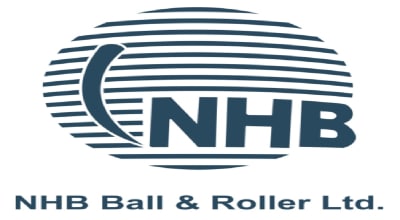- Home
- »
- Investment Banking
- »
- Mergers & Acquisitions
Mergers & Acquisitions
Unlocking growth and synergy through strategic mergers and acquisitions. Our expert team will guide you through seamless integration, ensuring maximum value and a competitive edge in the market.
Enquiry Form

Deal
Value

No of
Transactions

Sectors
Served

Team
Strength

Deal
Value

No of
Transactions

Sectors
Served

Team
Strength
Tailored M&A Solutions for Strategic Growth and Value Creation
With over two decades of expertise, InCorp delivers strategic M&A advisory across 15+ sectors, enhancing shareholder value through growth, maturity, and exit phases. We excel in identifying ideal targets, structuring deals, and providing seamless integration support. Our team offers comprehensive buy-side and sell-side advisory, working closely with investors, banks, legal counsel, and intermediaries to ensure efficient transactions. Leveraging our strong network across the APAC region, outside of India, we guide clients to optimal M&A opportunities tailored to their strategic needs.
Service Areas Within Strategic M&A

Buy side - Target Identification
We help identify potential targets that align with the buyer’s strategic objectives and operational synergies through in-depth research on the target market and industry to identify trends and emerging opportunities

Sell side - Acquirer Identification
We aim to find the right strategic investor/buyer by understanding clients' business and its long-term objectives such as the desired deal structure and valuation expectations

Leveraged Buyouts
We guide clients in their inorganic acquisition strategies with customized structures, optimal financing through a blend of equity and debt, and value creation to maximize investment returns and growth potential.

Management Buyouts (MBOs)
Management buyouts involve a company’s existing management team purchasing the business they run. We facilitate this by designing tailored acquisition structures, securing optimal financing, and ensuring strategic value creation to maximize investment returns and growth potential.
InCorp Insights
Navigating Fundraising Instruments and Mechanisms
Companies in India have an option to issue various investment instruments to its investors in order…
IPO Listing Process in India: 8 Key Steps and Best Practices
With a transparent IPO listing process, favorable regulations, and high retail participation, the Indian IPO market…
SME IPO Listing Process: A Step-by-Step Guide
Large organizations have multiple ways of raising capital to fund their business activities, such as bank…
Debt Syndication: A Strategic Finance Solution for Businesses
Debt syndication is completely transforming the financial world. The following research conducted by McKinsey proves this…
5 Effective Ways to Raise Capital for Businesses Through Equity
Let us start by understanding why your business needs to raise capital. There are basically three…
The Speedy Way to Reorganize Group Companies: Understanding Fast-Track Mergers
Mergers and amalgamations are popular corporate restructuring strategies that companies use to achieve their business goals…
Note On One-Time Restructuring Of Loans
Real Estate is one of the major sectors which has been deeply impacted by the COVID-19…

FAQs
Discounted Cash Flow (DCF): Estimates a company’s value by projecting future cash flows and discounting them to present value using a discount rate. This method focuses on intrinsic value based on expected financial performance.
Comparable Company Analysis (CCA): Determines value by comparing financial metrics (e.g., P/E ratio, EBITDA) of similar publicly traded companies. It provides a market-based valuation relative to peers.
Precedent Transactions: Values a company based on the prices paid in similar past M&A transactions. This method reflects market trends and transaction dynamics relevant to the deal.
Asset-Based Valuation: Calculates value based on the company’s net assets—total assets minus liabilities. This approach is useful for companies with significant tangible assets.
Companies Act, 2013: Provides the legal framework for mergers and acquisitions, including approval processes and regulatory compliance.
Competition Act, 2002: Regulates anti-competitive practices and requires approval from the Competition Commission of India (CCI) for mergers affecting market competition.
Securities and Exchange Board of India (SEBI) Regulations: Oversees public company acquisitions, including disclosure requirements and takeover regulations.
Foreign Exchange Management Act (FEMA), 1999: Governs foreign investments and cross-border transactions.
Income Tax Act, 1961: Addresses tax implications of mergers and acquisitions, including tax benefits, liabilities, and treatment of capital gains.
Increased Cross-Border Activity: Rising foreign interest in Indian companies due to economic reforms and market potential.
Sector-Specific Deals: Notable M&A activity in technology, pharmaceuticals, and renewable energy sectors.
Private Equity and Venture Capital Involvement: Growing participation from PE and VC firms in buyouts and growth-stage investments.
Regulatory and Compliance Enhancements: Evolving regulations and stricter compliance impacting deal structures and due diligence.
Focus on Digital Transformation: Companies pursuing M&A to enhance digital capabilities and adapt to technology shifts.
ESG Considerations: Growing emphasis on environmental, social, and governance factors in deal-making, influencing investment decisions and corporate strategies.
clientele


















Expert Team

Inderpreet Chadha
Head - Investment Banking

Amit Kothari
Co-Founder - Debt Syndication

Jayesh Sanghrajka
Co-Founder - Stressed Assets
Direct to Your Inbox!
Stay updated with our curated newsletter content designed for you






































































